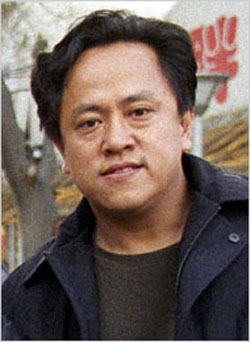Chinese journalist Zhao Yan, a former reporter with a Beijing newspaper, has
been sentenced to three years in prison for fraud, according to sources from the
No. 2 Intermediate People's Court of Beijing on Friday.

Zhao
Yan. [File] |
But he was found not guilty of releasing state secrets as the court felt the
prosecutors did not provide sufficient evidence to support this charge.
International media have reported that Zhao was suspected of providing
state secrets to the New York Times.
The Beijing No. 2 Intermediate People's Court rejected the state secrets
charge in a 10-page verdict released Friday morning. "On the charge against the
defendant Zhao Yan that he provided state secrets abroad, the evidence is
insufficient," the court ruling read. "The charge for this crime cannot stand,
and this court does not accept it."
Zhao was detained in September 2004. Under Chinese law, the time he has
already served will count against his prison term. Mo Shaoping, his lawyer, said
the court ruling stated that his release was scheduled for September 15, 2007.
Zhao Yan joined The New York Times's Beijing bureau as a researcher in
April 2004. The American newspaper has denied that Zhao leaked any state secrets
to it. "If the verdict is what it appears to be, we consider it a vindication,"
said Bill Keller, executive editor of The New York Times, according the
newspaper's online report on Friday.
On the fraud charge, the court ordered him to pay 2,000 yuan (US$250) in
fines and to pay back 20,000 yuan (US$2,500) he had gained through fraudulent
means.
Zhao denied the fraud charges, said his lawyer Mo Shaoping.
Another defense lawyer, Guan Anping, said he didn't know whether Zhao would
appeal the conviction handed down by the court.
Xinhua News Agency was provided with a document by the court that provided
only the following details of the proceedings.
The document says in 2001
Zhao traveled to Jilin to investigate a story for the Beijing newspaper "Baixing
Xinbao" involving a man named Feng Shanchen, who had been given a punishment of
one and a half years in a labour camp by the local authorities in Songyuan City,
northeast China's Jilin Province.
According to the document, Feng
believed the penalty to be unjust and turned to Zhao for help. Zhao reportedly
lied that he had connections with the "Legislative Affairs Bureau of the State
Council" and if Feng paid him 20,000 yuan, he would be able to rescind the
punishment. But Zhao is said to have taken the money but did not keep to his
promise.
The document says that the court had fully protected Zhao's
procedural rights during the trial. He was defended by himself and two other
defence lawyers.
"Baixing Xinbao", a subsidiary paper of "Legal Daily",
started publication in January 2000 but was closed down in December 2001 for
losing money.